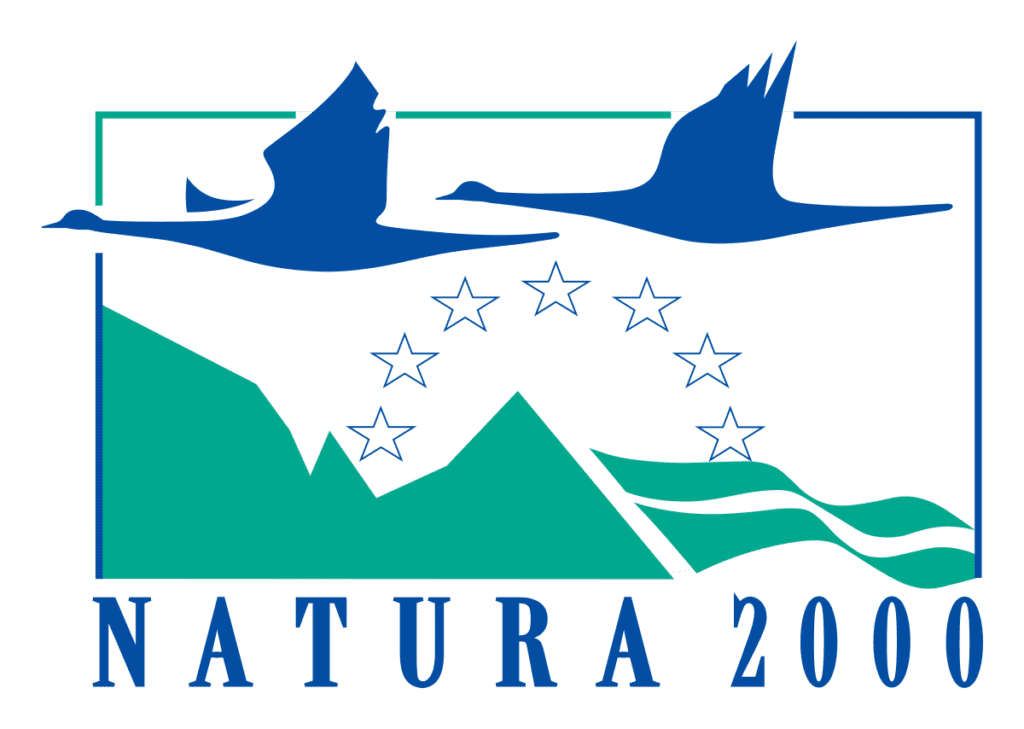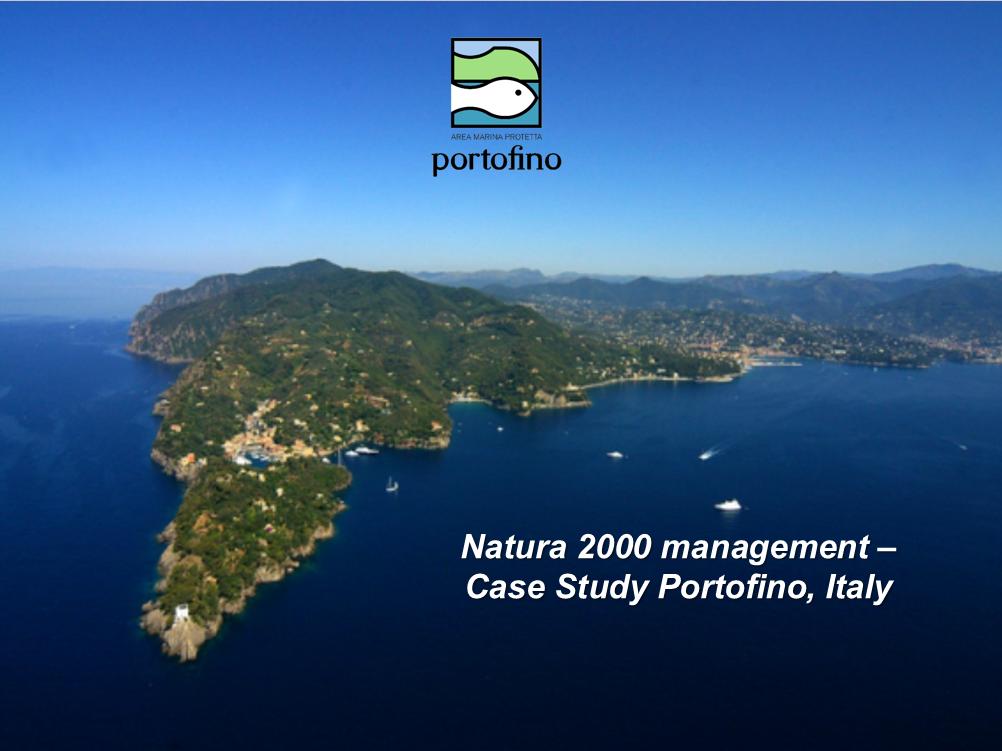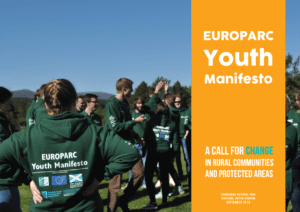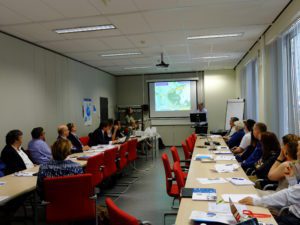Kick-off: #HabitatHeroes – EUROPARC Junior Rangers for Protected Areas and Natura 2000
EUROPARC Junior Rangers discover and learn about the many valuable species and habitats of Protected Areas all over Europe – and beyond.
With their engagement they help to preserve our natural treasures and inspire their peers to grow more curious and caring about nature as well. EUROPARC Junior Rangers are true Habitat Heroes and as such we want to celebrate them once more!


International Junior Ranger Camp 2018 – Müritz National Park
To make the current activities of Junior Ranger network visible, EUROPARC Federation has launched a campaign together with Junior Ranger groups across Europe:
Meet our Habitat Heroes – EUROPARC Junior Rangers for Protected Areas and Natura 2000
How to learn more and keep track of the #HabitatHeroes campaign activities?
Over the rest of 2018 and throughout 2019 we will “map the field” and raise awareness for the great work Junior Ranger groups are currently doing for threatened flora, fauna and habitats in Protected Areas and Natura 2000 sites in particular.
- Visit the “Habitat Heroes” campaign website: For now, we are thrilled to introduce you to our Habitat Hero campaign pioneers – groups already taking action in 2018. You will find a growing map and overview of all Junior Ranger groups joining the campaign over 2019.
- Besides, you will meet our “Habitat Heroes” over the upcoming months in dedicated articles – make sure you follow our news!
- Keep an eye on social media – the #HabitatHeroes will provide you with exciting updates from our Junior Ranger groups that take part in the campaign. Don’t forget to share their actions!
- European Day of Parks – 24th May 2019 – will be all about “Our Natural Treasures” and our Junior Rangers are all invited to run a “Habitat Heroes” conservation activity dedicated to the natural treasure of their Protected Areas.
Want to join the campaign? We are happy to learn about your conservation action – just drop us a mail: f.minozzi_at_europarc.org
Time to meet our first #HabitatHeroes pioneers: The Kullaberg Junior Rangers introduce themselves!
by Tor Larsson, Kullaberg Junior Rangers Mentor
Kullaberg Nature Reserve is located in the south west of Sweden, on a peninsula with a ridge pointing out to the sea. The area has been inhabited since the stone-age and was in fact the first part of what today is Sweden to show when the continental glacier withdrew after the last glacial period. At the peak is a lighthouse overlooking the strait of Öresund and you can see the Danish coastline.

Junior Rangers in Kullaberg Nature Reserve ©Tor Larsson (Mentor)
- Tell us all about your “natural treasure”: Which is the species or habitat you learn and work with the most in your Protected Area? What is special about it?
In the marine reserve of Kullaberg, you can see seals and harbour porpoise and the steep cliffs the peregrine falcon mate.Even though it is quite small, the Kullaberg Nature Reserve is the most visited nature reserve in Sweden with more than half a million visitors each year. With that kind of exposure and several commercial companies engaging in activities such as scuba diving, rock climbing and mountain biking, there is a lot of work needed to maintain Kullaberg a sustainable tourism destination.
- Describe us what you and your fellow Junior Rangers are doing/will do to learn more and protect your natural treasure. Do you even teach others?
The area that is of most interest to the Kullaberg Junior Ranger Group is the marine nature reserve and in particular the pollution and amount of plastic waste in the sea. One Kullaberg Junior Ranger says:
Kullaberg is fairly well-protected on land but the marine nature reserve is more vulnerable. All kind of plastic waste floats in and we can make difference by helping to clear the coastline from it!
The group also helps with other things; like monitoring invasive species and supporting the population of the red-listed eel by releasing glass eel in the marine nature reserve. Besides the Kullaberg Junior Ranger Group has been working to provide a new secure fire-place and wood for burning in an area where there previously had been several illegal fireplaces made.
- What do you find tricky being a Junior Ranger – and what is the best thing about it?
The Kullaberg Junior Ranger group is enthusiastic about the Junior Ranger programme in general, especially about the opportunity to meet new friends in the international junior ranger community. They think it is essential, however, to get more people to know about the programme.
We ought to tell more young people about it. Maybe we could have presentations in the schools.
________________________________________________________________
The Kullaberg Junior Ranger programme is administered by the local scout group, Jonstorp Kustscoutkår.
Learn more about the Kullaberg Habitat Heroes on their (Swedish) webpage and on their Facebook-Page.
Also, make sure you watch their new video; taking you on a tour of their summer 2018 – full of Junior Ranger action…including EUROPARC International Junior Ranger Camp in Müritz National Park!
Webinar: Marine Natura 2000 Sites
Management challenges in Marine Natura 2000 Sites
- Wednesday, 5th December 2018, 10:00 CET (Central Europe Time)
- Register here
Over the years the EU has established an increasingly robust policy framework (Habitats & Birds directives and Marine Strategy Framework Directive) to address the multiple challenges facing its marine environment and to ensure a more sustainable ecosystems-based approach to the use of its marine resources.
The Habitats Directive lists nine marine habitat types and 16 species for which marine site designation is required, whilst the Birds Directive lists a further 60 bird species whose conservation requires marine site protection.
As its terrestrial counterpart, the marine environment is also divided in different biogeographical regions: Marine Atlantic, Marine Baltic, Marine Black Sea, Marine Macaronesian and Marine Mediterranean.
At the end of 2017, more than 3000 marine Natura 2000 sites have been designated, which cover more than 7% of the total EU marine area (over 400,000 km2).
In this webinar, we will get to know two of these designated sites, one from the Marine Atlantic region – the Isles of Scilly, presented by Tom Hoppe, from Isles of Scilly Inshore Fisheries and Conservation Authority (IFCA) and one from the Marine Mediterraneanregion – the Portofino MPA introduced by Valentina Cappanera,.
The webinar will be presented by Fotios Papoulia, policy officer from the EC DGENV, who will introduce the main priorities and challenges of Natura 2000 in the Marine Environment.
Case Study 1
Proactive management of fisheries within a Special Area of Conservation – the Isles of Scilly.
Future challenges to managing a site and making good decisions in the context of relatively poor knowledge.
By Tom Hoppe, Chief Fisheries and Conservation Officer for the Isles of Scilly Inshore Fisheries and Conservation Authority (IFCA)
The Isles of Scilly are an archipelago 40km from the mainland of Cornwall on the South West tip of England. The islands were designated as an SPA in 2001 and as an SPA in 2005. A Marine Conservation Zone comprising 11 ‘subsites’ was designated in 2013. The site has been designated for species such as reefs, seagrass beds, grey seals. The Inshore Fisheries and Conservation Authority (IFCA) has responsibility for the management of fisheries within an area out to six nautical miles, in total 406 square kilometres of sea. Commercial fishing only takes place at a very low level of pressure, with 23 local boats primarily operating pots and nets.
Tom Hoppe will talk about the relationships between the different agencies involved and how they have operated within a new requirement to proactively manage fisheries within the SAC. He will mention the different pressures on this system and how they are managed; highlighting where this management is cultural, voluntary or through a regulation. He will also talk about future challenges to managing a site and making good decisions in the context of relatively poor knowledge.
Case Study 2
Italian MPAs and the management of Natura 2000 – the example of Portofino MPA
By Valentina Cappanera, Staff member of the Managing entity of the Portofino MPA
The management of marine Natura 2000 sites is not homogeneous at Italian level. However, in global terms, the current situation of marine Natura 2000 sites in Italy is not good and an alignment with other countries is needed. Portofino is the third smallest MPA in Italy; nevertheless, it has a really rich flora and fauna heritage but suffers a strong human frequentation.
As any other Italian MPA, Portofino has to carry on its conservation goals fitting the regulation with the necessity of protection of Natura 2000 sites. In her presentation, Valentina will tell us about their goals and efforts to regulate acess within the MPA.

The webinar will be held in English and have a duration of approximately 1:15 min. Participation is free but registration is necessary – you can register here.
Siggen Seminar 2019: Registrations are now closed!
EUROPARC Youth Manifesto - Workshop II in Kalajoki, Finland June 2018 (©Rita Kovács)
Siggen Seminar 2019
- Youth involvement in Protected Areas
- 18th – 21st March, Gut Siggen, Germany
This year, continuing on from the launch of the YOUTH MANIFESTO, we will focus, in this 2 day seminar, on working with youth. We will explore the new programme created by EUROPARC the Youth + programme and how this can be a model for working with 18-25year old in your park.
We will also hear from other youth programmes to gain new perspectives and ideas that will help you build a programme in your area. You will be welcome to bring your own ideas for a collective “surgery” where we can examine problems and challenges you may have and suggest solutions together.
The seminar is FREE to EUROPARC members (includes meals and accommodation), you need only cover your travel costs to Siggen.
By early 2019 the full programme will be launched.
Registrations are now closed!
How to get to the Siggen Seminar Center?
The Siggen Seminar Center belongs to the Alfred Toepfer Foundation and lies on the north-eastern coast of Germany in the county of Holstein. It is a 20 minute taxi ride from the nearest train station, Oldenburg (Holst), and a five-minute bike-ride to the nearest beach.
Please contact EUROPARC with any questions you might have and download the pdf Directions to Siggen to learn how you can easily reach it by plane, train or car.
Seminar-Dialogue with the European Commission 2018 – registrations are open
The voice of nature will be heard at the highest level in the European Commission: the EUROPARC Federation invites members to join the second Seminar-Dialogue, organised in close cooperation with the DG Environment (DG ENVI) and with the participation of DG Agriculture (DG AGRI) and DG Education and Culture (DG EAC).
Seminar-dialogue with the European Commission 2018
Partnerships for biodiversity: European policies and the role of Protected Areas
- 7th December 2018
- 09:00 – 16:30
- DG Environment, Avenue de Beaulieu 5, 1160 Brussels
On the 7th December, EUROPARC members will have the chance to sit with the European Commission to share their experience and needs for the effective management of Natura 2000. By bringing together representatives of the DG ENVI, DG AGRI and DG EAC and protected area professionals,
EUROPARC aims to highlight the contribution of Protected Areas to the achievement of the European policy goals, whilst giving the European Commission a clear insight of the challenges faced by professionals in the field.
The Seminar will count with interventions from EUROPARC members and from the different DGs, who will share the latest policy updates and funding opportunities. Following the successful Seminar-Dialogue organised last year, EUROPARC and DG Environment have set up a programme focused on four key areas:
- Managing Natura 2000: funding, opportunities and challenges
- Building partnerships for Sustainable Agriculture
- Nature and Culture: Protected Areas connecting people to their heritage and identity
- Youth involvement: the EUROPARC Youth Manifesto
The event will be anticipated by an internal meeting only for EUROPARC members, on Thursday 06.12.2018 between 15:00 and 18:00 at the EUROPARC Federation Brussels Office.
Would you like to participate?
Places are limited, but we look forward to welcoming as many members as possible to Brussels. Participation is free of charge but registration is mandatory. This event is specially addressed to EUROPARC members directly working with Protected Areas and European Commission officers.


